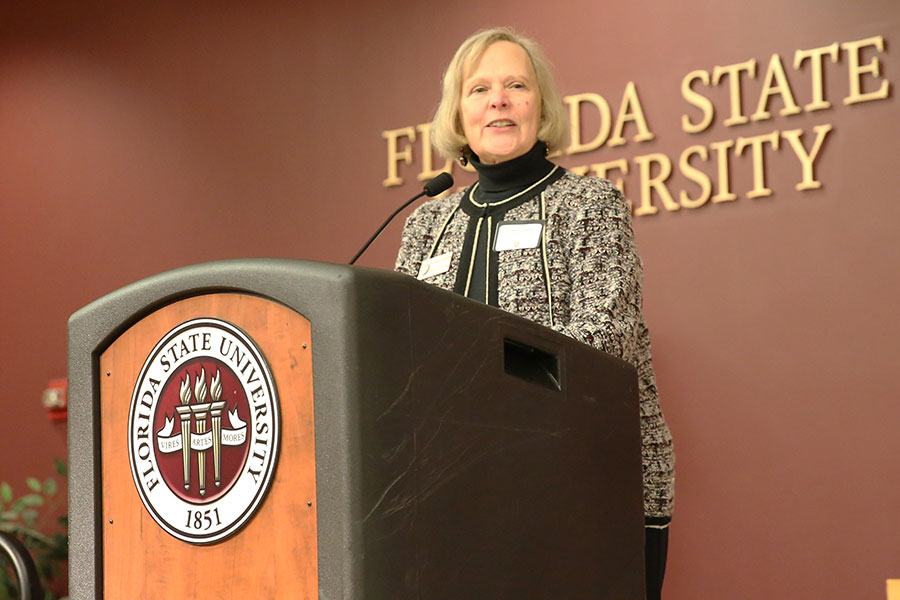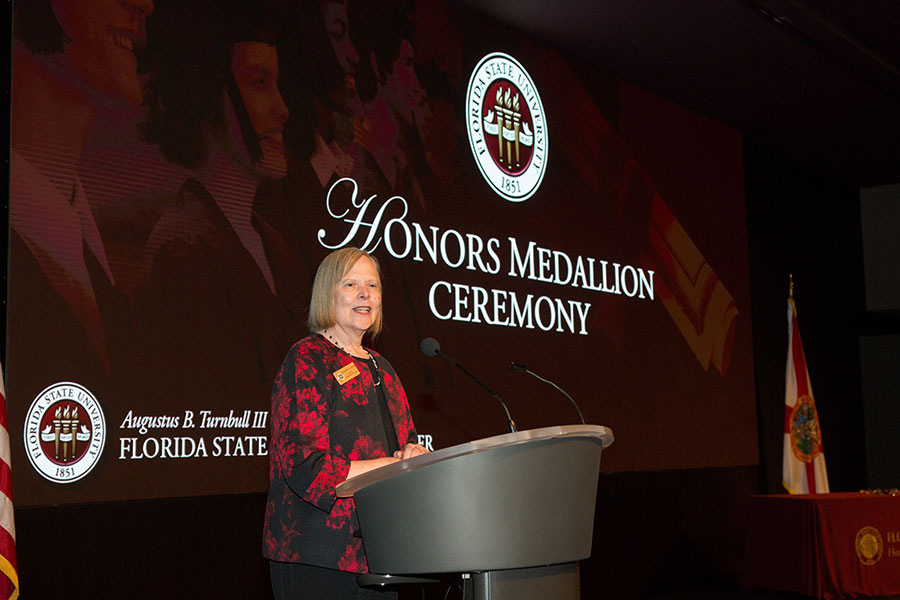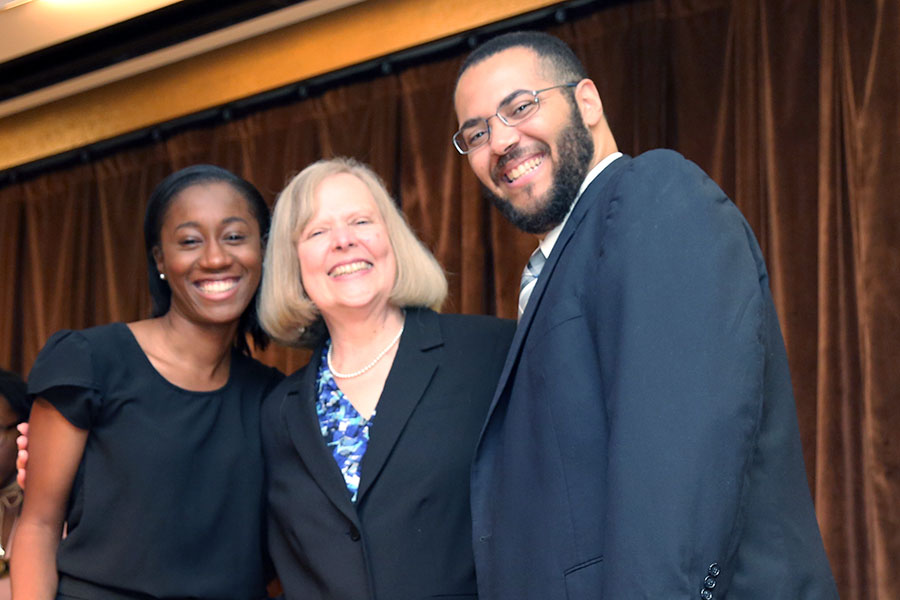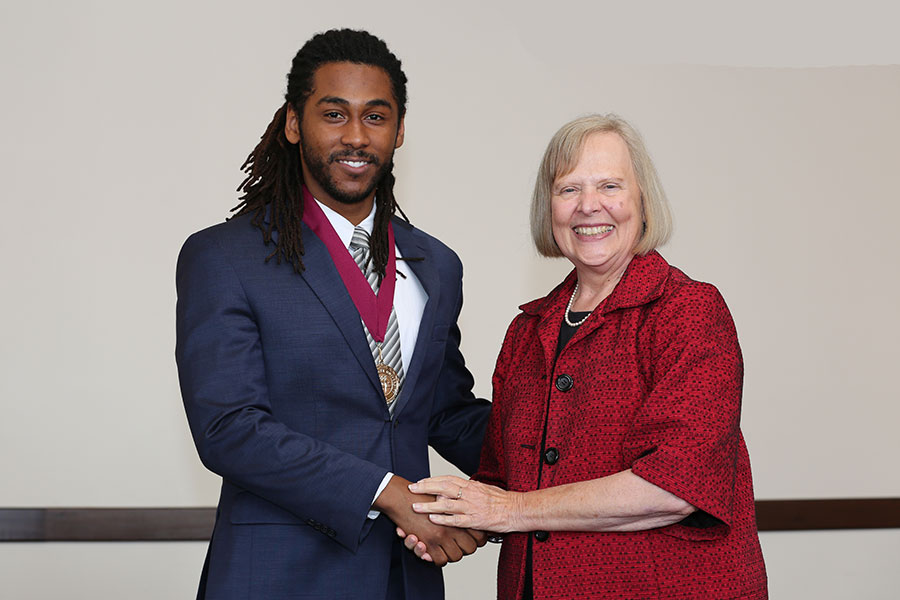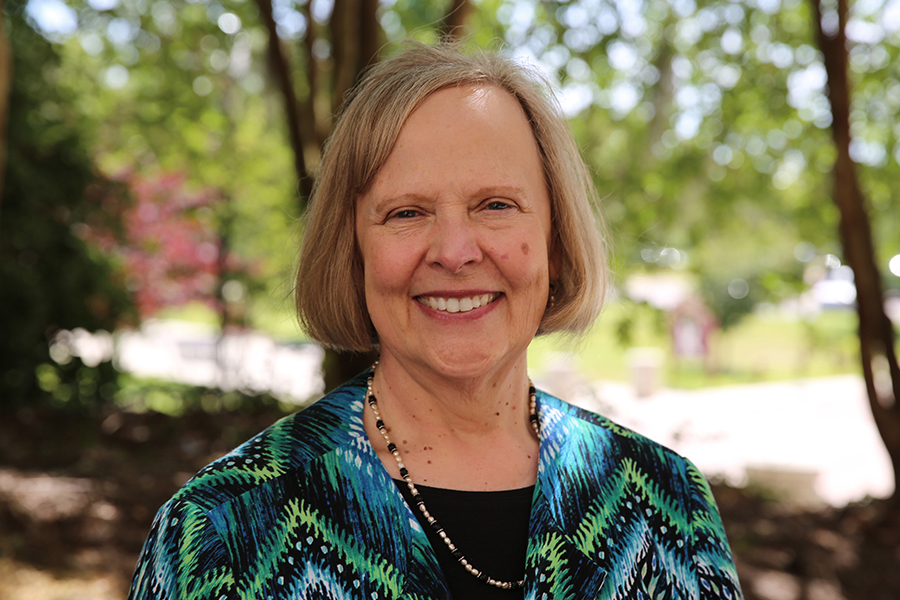
Members of the FSU family pay tribute to Dean Laughlin on social media
Florida State University is mourning the loss of Dean of Undergraduate Studies Karen Laughlin — an influential, tireless and dedicated educator who, for almost four decades, helped define the very nature of an undergraduate education earned by countless FSU students.
“I was so sorry to hear of Dr. Laughlin’s passing,” said FSU President John Thrasher. “Karen was committed to ensuring that the university continued to give a high priority to undergraduate education and to helping provide FSU’s undergraduate students with the richest possible educational experience. She will be missed terribly.”
Laughlin, who also held a position as associate professor of English, spent her entire professional career at FSU. For the past 17 years, she led the Division of Undergraduate Studies, which works to help students develop a sound academic foundation during their first two years at FSU before they enter their major field of study.
Most recently, Laughlin joined Thrasher to confer more than 5,600 bachelor’s degrees to spring graduates during FSU’s virtual commencement ceremony, which was streamed Saturday, May 2.
“We are deeply saddened to lose Karen, who meant so much to the university and was so passionate in her support of a liberal arts education,” said Provost and Executive Vice President for Academic Affairs Sally McRorie. “She strongly believed in having students view problems from many different perspectives to find creative solutions. She was especially proud of the Presidential Scholars program and saw that as her lasting legacy.”
Presidential Scholars is FSU’s premier merit scholarship program, which invests in undergraduate students with extraordinary potential to be the transformational leaders of their generation.
As dean, Laughlin focused on boosting retention and completion rates by making sure students were supported and connected to the university. She strengthened FSU’s advising process and implemented academic mapping to help students graduate in four years, and under her leadership, FSU’s freshman retention rate and four-year graduation rate reached all-time highs.
Laughlin also advocated for more programs to promote student engagement on campus to ensure every student found their home at FSU. She directed the Office of National Fellowships, the Center for Undergraduate Research and Academic Engagement, the Honors Program, Global Scholars, Unconquered Scholars, the Center for Academic Retention & Enhancement (CARE), the Academic Center for Excellence and Freshmen Interest Groups.
Before accepting the position of Dean of Undergraduate Studies, Laughlin served as chair of several Faculty Senate Committees, including both the Undergraduate and Graduate Policy Committees, as well as president of the FSU Faculty Senate in 2000-2002.
Laughlin came to FSU in 1982 and held a joint appointment in English and Humanities for several years. She received her B.A. from Duke University and studied abroad in France. After graduating, she returned to France on a Fulbright Fellowship that enabled her to teach English at a high school in Limoges. She then went to Canada and earned her M.A. and Ph.D. in Comparative Literature at the University of Toronto.
Her teaching interests included Modern and American Drama, women’s studies, film, and critical theory, and she had a particular interest in the plays of Samuel Beckett. She received a Teaching Incentive Award in 1994 and again in 1996. Her publications include a collection of essays on Theatre and Feminist Aesthetics and articles and book chapters on playwrights such as Bertolt Brecht, Beth Henley, Susan Glaspell, and Megan Terry as well as, of course, Beckett.
“Florida State is proud of its liberal arts tradition,” she wrote on the Undergraduate Studies website, “recognizing the importance of engaging students with a broad range of knowledge and with ideas both new and old.”
FSU’s liberal arts curriculum, Laughlin told students, “trains you to think logically, to analyze clearly, and to communicate with precision and power.
“I encourage you to approach all of your course work with an open mind, explore new fields of knowledge, rethink your own assumptions, and enjoy the intellectual challenges you encounter. Doing so will enrich your life in ways that may well surprise you.”





